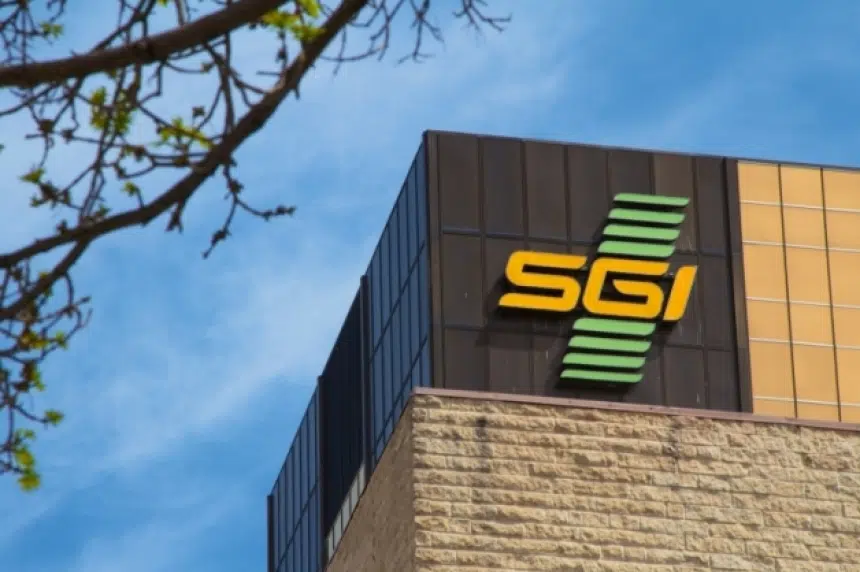By Glenn Hicks
As the province’s public insurer, SGI, sees a big mounting surplus in its reserve fund due to a sharp reduction in claims amid the COVID pandemic, the Crown corporation says it is pondering giving some of it back to motorists.
Meanwhile, the opposition NDP continues to call for rebate cheques and claims the surplus in SGI’s Rate Stability Reserve is excessive and ‘suspicious.’
Earlier this week British Columbia’s much-maligned public insurer, ICBC, confirmed rebate cheques averaging $190 for policy holders given their substantial COVID-related surplus of hundreds of millions of dollars.
Other insurers including those in Manitoba, Alberta and Ontario have already made that move. But SGI has yet to delve into its burgeoning reserves which now stand at over $1.1 billion. This, as claims dwindled by around 20 per cent.
Options being reviewed
“We’re nearing the end of our fiscal year (end of March) and we’re currently reviewing our financial position and options to provide additional value to the people of Saskatchewan,” manager of media relations Tyler McMurchy told paNOW. “That could include a rate reduction or rebalancing, enhanced benefits, or rebates … or a combination of these options.”
McMurchy said while claim volumes fell by 20 per cent March through December 2020, some of those savings were offset by the average cost of each claim going up five to 10 per cent.
He added Saskatchewan has a reputation as one of the most affordable provinces in the country for insurance and the Rate Stability Reserve is a fund aimed at ensuring no sudden hikes in future premiums and to cover for major unexpected and costly events.
He also stressed the cost of claims was not the only element to the fund as it also features various investment holdings — some of which took a plus-$200-million hit because of COVID — although there has been some bounce back.
However, the opposition NDP, which was calling for rebates before the fall provincial election, says cheques need to be going out to a public that has been hurt financially because of COVID.
NDP questions surplus
“When folks have more dollars in their pockets that can help pay bills, help you save during the pandemic, or they can circulate in the local economy,” SGI critic and MLA for Regina University Aleana Young said.
She added the $74 million saved by the recent reduction in claims should be disbursed to policy holders and called the Rate Stability Reserve’s current risk-to-asset ratio of 165 per cent unnecessary. The legislated mandate for SGI is to run the fund on a ‘break-even’ basis over time.
“We’re significantly overfunding that and I think it’s more than a little suspicious,” Young said. “When we have a massive pile of money sitting there that under legislation is not supposed to be, I think it’s fair to ask questions as to whether SGI is being essentially fattened up for slaughter or for sale, or if we’re going to see the government look to the Crowns again to pay off their historically high debt.”
paNOW reached out to the ministry responsible for SGI but did not get a response.
Local insurers praise SGI model
Insurance brokers in Prince Albert said as yet they have not heard calls from clients for rebates, despite the large improvement in the SGI coffers.
Emily Proulx, the manager of Hub International, said it remained to be seen what SGI’s financial review would come up with and noted in this province major and sudden weather events and bad road conditions can make a big financial dent, as they already have this winter.
“We had a major wind event in Regina and we had an ice storm (in Prince Albert) … and those kinds of things do cause collisions and those are the claims SGI is still paying out,” she said, adding Saskatchewan enjoys among the most affordable registration and basic insurance rates in the country.
Tim Longworth, an owner of Cornerstone Insurance with decades of experience in the industry, concedes SGI is a government monopoly for primary insurance “and they’ve done a fantastic job; no wild fluctuations one way of the other as we’re seeing in Alberta and Ontario.” He said he trusted the Crown corporation to make the right choices with the surplus.
“In the past when they’ve had surpluses, then they’ve had smaller increases. Or they’ve embarked on campaigns such as against drunk driving,” he said. “That campaign has been tremendously effective.”







